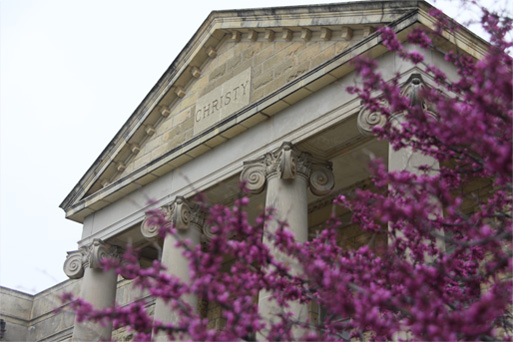Loans
|
|
LOAN [lon] - money that must be paid back. "Good debt puts money in your pocket." In a lifetime, the average college graduate earns approximately $830,000 more than the average high school graduate (Forbes, May 2014.) Consequently, experts still consider borrowing for college as "good debt." Even so - remember to borrow smart! |
How to Borrow Smart
- Have an idea of how much you will earn when you graduate.
- Borrow only what you need.
- Find alternative ways to pay costs up front.
- Pay down your loans early.
How much will I earn when I graduate?
The U.S. Department of Labor's Career OneStop is a great resource for information on the average starting salary of your chosen career. If you are a student at Southwestern, we recommend you visit the SC Career Center located in Deets Library for excellent resources and personalized career information.
But what if you are still undecided? According to the United State Department of Education's College Scorecard, Southwestern graduates earn an average of $44,200 within 10 years of attending. Smart borrowers will borrow only up to the point where their annual payment will not exceed 10% of their annual expected income.
$44,200 X .10 = $4,420 (or $368.34/month)
At an average of 5% interest, a person can borrow up to $34,000 before reaching a $368 monthly payment. The average debt of our graduates? $25,350
A popular financial maxim is, "Live like a college student now so you don't have to later."
The best way to keep this from happening in the first place is to only borrow what you need. Spend time budgeting your college expenses. If you don't know where to start, the Department of Education has a good video on Budgeting. Still confused? Contact a financial aid counselor in the Office of Financial Aid, we can help too!
How badly do you need that credit check? Occasionally, an individual will receive a credit check after financial aid has been applied to the account. Make no mistake, this credit exists because the total financial aid package - including student loans - is more than is necessary to pay the bill. One way to "borrow only what you need" is to request that credit checks be used to pay down existing loans on the account. The Office of Financial Aid will perform this service throughout the current academic year. (An academic year begins on the first day of classes in the summer term and ends with the last day of finals in the spring term.)
Find Alternative Ways to Pay Costs Up Front
The most common alternative options for paying your costs are to increase your grants by scouring for additional private scholarships and/or finding a job and making payments on a payment plan.
Increase your grant total - Southwestern keeps a list of scholarship announcements we receive from local organizations and companies. This page also has several other links to scholarship search engines you can try to research opportunities outside of the local area.
Find a job and make payments - When Southwestern is awarding work study funds, our assumption is that students are working for living expenses. Consequently, we do not plan on those funds assisting with paying tuition. But that doesn't mean wages can't be used to make interest free payments on your account. An individual working 10 hours per week at $7.25/hour can earn $290 per month. If you "live like a college student" and budget your living expenses carefully, the majority of those funds could be used to make payments on your account. Bonus! Working while you are attending school saves you money while giving you resume building experience to use after graduation.
Look at these examples:
- Student A pays $110 for 9 months - Reduces borrowing by $990; saves $60 in interest payments and loan fees.
- Student B saves $100 for 12 months - Reduces borrowing by $1,200; saves $85 in interest payments and loan fees.
- Student C pays $200 for 9 months - Reduces borrowing by $1800; saves $180 in interest payments and loan fees.
- Student D saves $200 for 12 months - Reduces borrowing by $2,400; saves $320 in interest payments and loan fees.
Calculations use a 5% interest rate and a 1.5% loan fee.
Sometimes students don't have the resources to afford college by making payments and so they must use student loans to close the gap between scholarships and the direct costs of college (tuition, room and board, books). But no one says you have to wait to pay those loans back! This way works well when your income source isn't steady or reliable enough to enroll in a payment plan, or when the bulk of your income occurs during the summer months.
Here's how to use your extra income to pay down loans disbursed to your account during the school year:
- Write a check or send money to Student Accounts.
- Send a note with the funds that you would like to have them applied to pay down your student loans.
- Watch your loans shrink first on your financial aid screens in Self Service and then a few months later on the MyStudentAid app!


